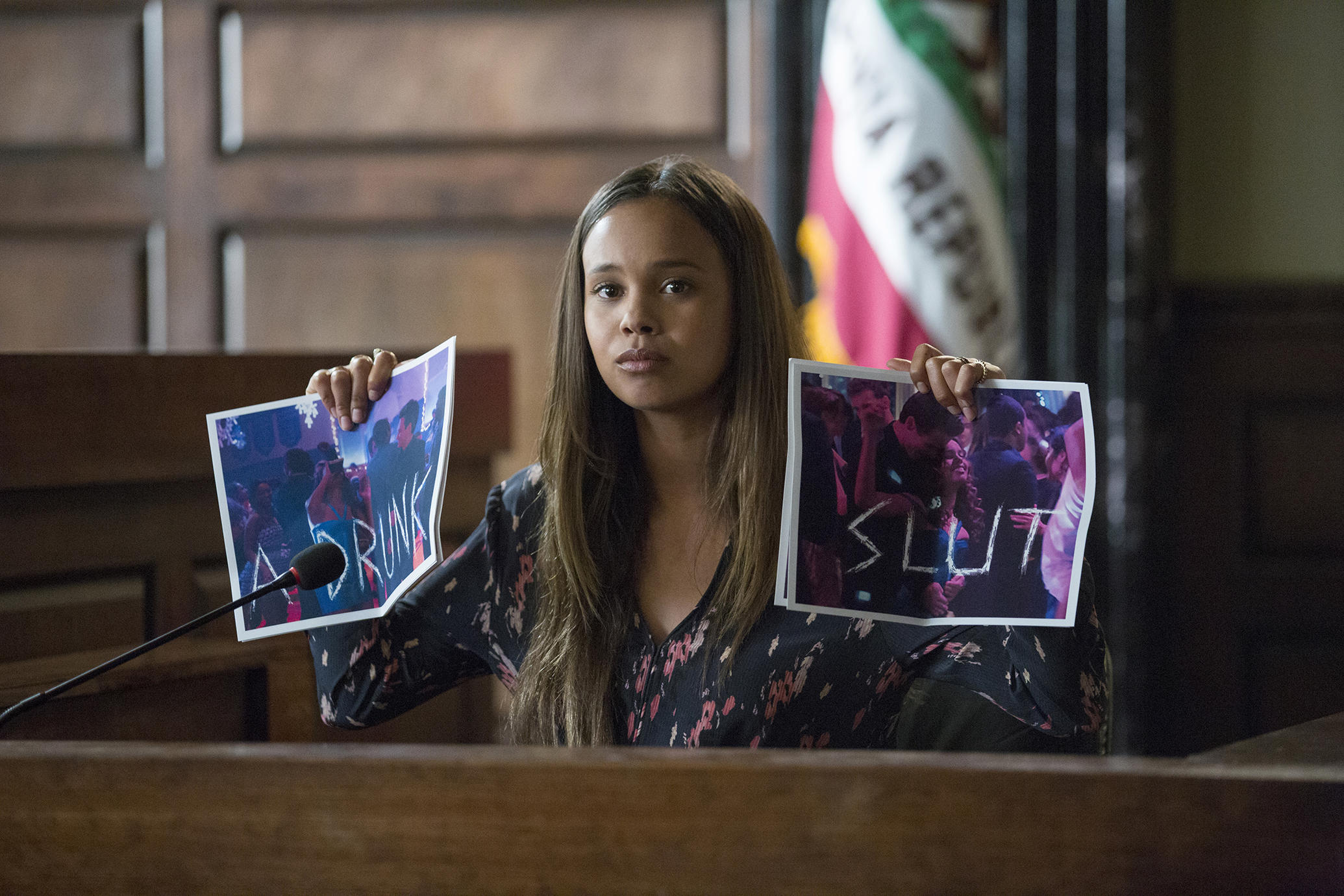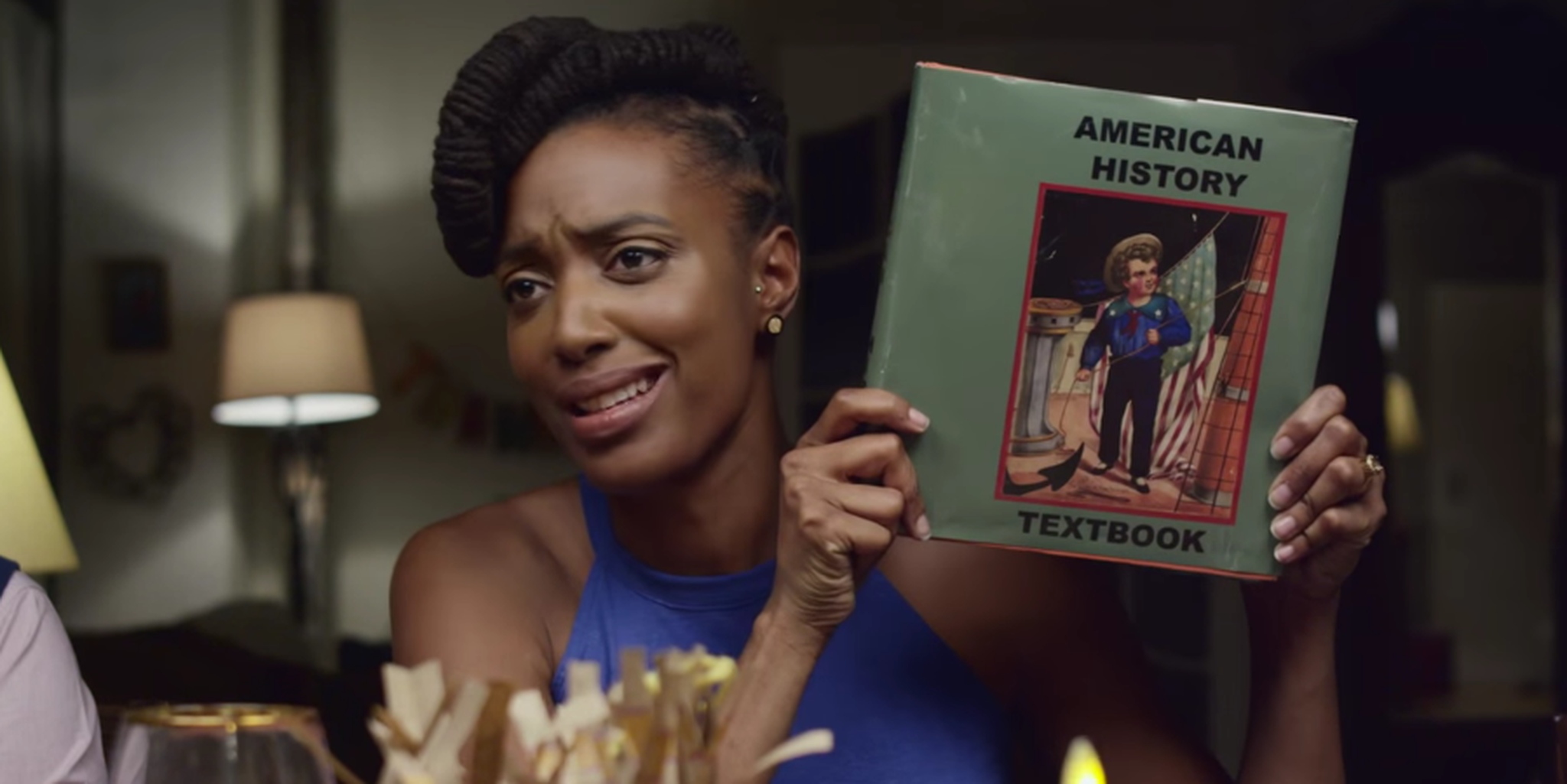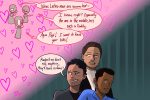MTV’s web series “Decoded” began in 2015, with American comedian, activist and television and YouTube personality Franchesca Ramsey taking the role of hostess. In the half-vlog, half- sketch comedy, the fearless Ramsey prompts conversations amongst her viewers about pressing topics, such as white privilege and modern excuses used to deny racism.
While the themes and content parameters in “Decoded” can be uncomfortable at times, Ramsey presents them in a funny, yet thought-provoking way, that sheds light on cultural issues that are often ignored or misunderstood. Here are seven of the most must-watch episodes of MTV’s “Decoded.”
1. 10 Excuses Used to Deny Racism Debunked.
In this episode of “Decoded,” Ramsey takes on some of the most notorious excuses used to deny racism and the attempted means some have used to justify racist behavior. Of the excuses presented in the episode, one of the worst was the claim that “my family did not own slaves.” Ramsey quipped that of course those people didn’t own slaves, they were allergic.
The show then shifted to a more serious tone, as Ramsey explained that just because your family didn’t own slaves, it doesn’t mean you are exempt from racism.
She creates an example where a person’s father is Tony Soprano, meaning everything that person owns, their house, their car, etc., is all a product of mob violence. So, even if this person didn’t participate in the illegal crimes themselves, they are still benefiting from it. Ramsey ends this argument with another comedic line saying, “I didn’t rob the bank, but I’m going to spend the money, okay?”
This episode prompts viewers to consider how their own white privilege may be systemically contributing to modern-day racism.
2. 4 Reasons You Shouldn’t be Afraid of Muslims.
Ramsey kicks off the episode by sharing a startling news headline where a Muslim teen was arrested after his English teacher mistook his homemade clock for a bomb. The series host urged audiences to recognize that this was not an isolated incident.
Islamophobia happens frequently across the United States. This story is just another reminder of how difficult life has been for Muslim-Americans post-9/11. In fact, Ramsey shares that one in three Muslim-Americans are singled out for TSA screenings every year.
In response, the “Decoded” hostess breaks down reasons why people shouldn’t be afraid of Muslims, such as the fact that Islam is the world’s second-largest religion. Ramsey argues that if all Muslims were really bomb-making terrorists, America would be in a much more chaotic and apocalyptic state.
3. 13 Things White People Take for Granted.
In this “Decoded” season one throwback, Ramsey and a few guest stars, examine white privilege. While white privilege is often viewed as a macroscopic political issue, there are several ways it exists on an everyday scale. This includes common day-to-day items, such as nude colored clothing and white faces printed on money, all of which highlight the needs and celebration of white people.
One of Ramsey’s guests also pointed out how much representation white people get in box-office films, such as “The Lord of the Rings.” From white-exclusive beauty products to flesh-colored band-aids that better suit a lighter complexion, there are many things that white people take for granted. With that in consideration, Ramsey suggests that all of this makes the world seem a little too white.
4. How Do You Handle Racist Jokes?
In his episode of “Decoded,” Ramsey guides viewers on the uncomfortable task of handling racist jokes. She says racist jokes can occur anywhere, while racial humor can do much more than offend, but can also contribute to the reinforcement of negative stereotypes about marginalized groups of people.
Ramsey tells viewers the first thing to do when handling racist jokes is asking yourself: “Can I talk about this now?” Not every situation is suited for “Don’t Be a Racist 101,” but in the moments where racist jokes can be talked about, Ramsey recommends trying these responses:
The sarcastic approach: “You know what’s really funny? Ironic racism, still racist.”
Don’t laugh: Just go completely silent, making the joker uncomfortable.
Play dumb: “Huh, I don’t get it, I mean this country was stolen from the Native Americans, built by slave labor and founded by immigrants, so technically, wouldn’t that make you illegal?”
Reply with a judgmental GIF.
Unfriend them: “You don’t have to put up with that online or off.”
When all else fails, just be honest. Ramsey tells viewers that political correctness isn’t keeping jokes from being told, but rather suggesting that if Americans want a better world, they should also want better jokes.
5. 5 Trans Tropes That Need to Stop.
In honor of pride month, Ramsey discusses how the media is still misrepresenting the transgender population with worn-out tropes. American film and television have come a long way with the inclusion of transgenders on screen, but it’s important to realize that not all representation is good representation.
Ramsey shares that quality, not just quantity, matters because 84 percent of Americans only learn about trans people through what they see in the media. Therefore, trans tropes in television and film, such as gender identity reveals served as a punchline or trans identity used as a plot twist, famously done in “Pretty Little Liars,” need to go.
6. How to Stop Victim Blaming.
In this insightful episode of “Decoded,” Ramsey explores the extensive reasons why victim blaming is such a common occurrence. These explanations include moral values, human psychology and surprisingly, grammar.
When something bad happens to a person, whether it be an object is stolen from them or some kind of damage happens to their car, that individual is always somehow blamed. They may hear things such as: “Well, you should’ve put your wallet in a different pocket,” or “I would’ve parked somewhere else.” Oddly enough, this accusation pattern has a name, victim blaming.

Ramsey uses the popular Netflix series show “13 Reasons Why,” to help understand the psychology of victim blaming. Alisha Boe, Jessica Davis on the show, revealed in a recent interview how fans responded to Davis’ sexual assault by slut-shaming her, blaming her for being drunk. Boe admits she was surprised, as she thought people would sympathize with Davis after what she had been through.
Ramsey then explains how framing stories from a different perspective and changing the sentence structure, prompts people to become less focused on the victim’s actions and what they should have done, by shifting the sentence focus to the perpetrator.
7. 5 Mental Health Stigmas That Need to Go
With recent news of the tragic deaths of Kate Spade and Anthony Bourdain, the emergence of harmful misconceptions of mental illness and coping must be combated. One of the most common, yet misplaced, beliefs is that wealth, race or even fame excludes people from facing mental illness. Yet, prestige has nothing to do with mental illness. In fact, one in five Americans struggle with mental health issues, such as anxiety and depression.
However, due to mental health stigmas, not everyone is quick to reach out for the help they need. In this episode, Ramsey explores five of the most common types of mental health stigmas that are better off falling by the wayside, as well as identifying celebrities who are open about their own struggles with mental health issues, such as bi-polar disorder and OCD.

















